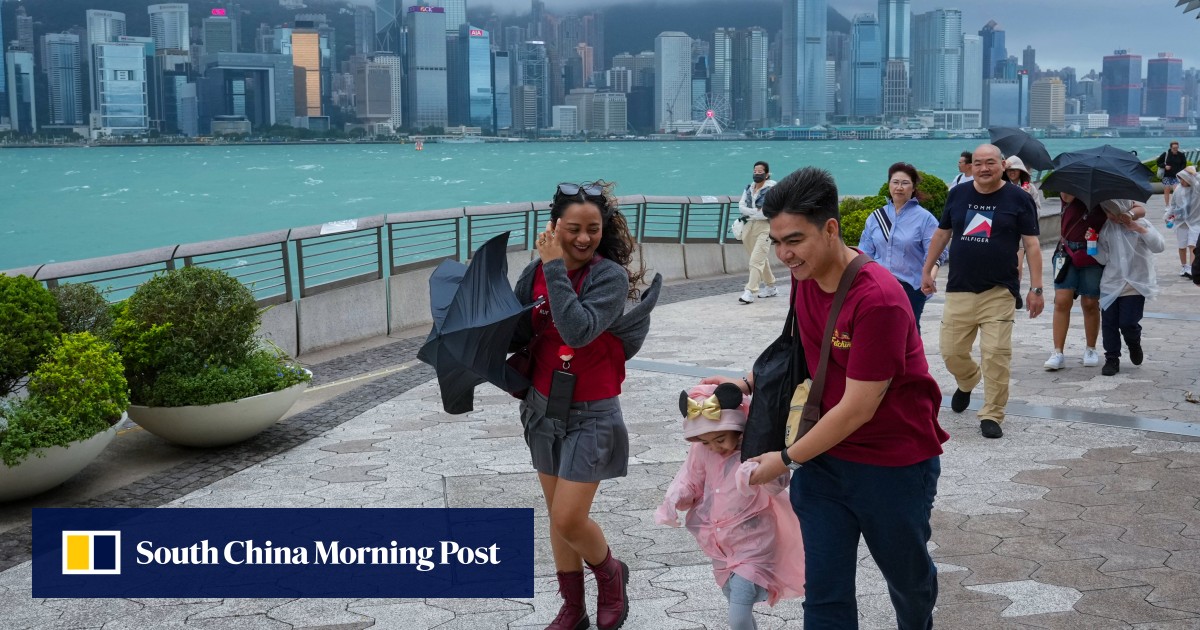HONG KONG – A Hong Kong court will sentence dozens of former democracy advocates in the city’s largest national security trial, a move likely to further deter dissent in the finance hub and attract condemnation from Western governments.
The sentencing of former youth activist Joshua Wong, 28, and legal scholar Benny Tai, 60, will start at 10am on Nov 19, nearly four years after they were arrested in a sweeping police campaign that scooped up scores of opposition figures. The US has called the case “politically motivated” and vowed to put visa curbs on officials responsible for carrying out Beijing’s national security crackdown.
Wong and Tai were among 47 activists accused of subversion under a China-imposed security law for holding unofficial primary polls in 2020, which saw more than 600,000 voters choose candidates for Legislative Council elections. Hong Kong authorities claim that event was part of an illegal attempt to paralyse the government, and the Chinese government accused them of seeking a “color revolution.”
The mass arrests in 2021 effectively silenced the city’s entire political opposition, and most of the accused have been denied bail.
The landmark case, together with the trial of Jimmy Lai that resumes on Nov 20, comes as Hong Kong is hosting a summit with global financial leaders aimed at bolstering its status as an international finance hub. The sentencing could further inflame the city’s geopolitical ties. America is weeks away from the return of President Donald Trump, whose first administration hit Chinese officials with sanctions over its assertive Hong Kong policies.
The US government in May warned that imposing harsh sentences will only “further erode confidence in Hong Kong’s judicial system,” State Department spokesman Matthew Miller said earlier in 2024.
“These national security cases have already made their mark and will no doubt further do so when expected harsh sentences are reached,” said Mr Michael Davis, global fellow at the Woodrow Wilson International Centre for Scholars in Washington.
“Hong Kong’s big attraction was always its reliable rule of law and openness,” he added. “With such diminished rule of law some companies move their offices and others cut back.”
Rise and fall
Wong’s sentencing will mark the end of a remarkable political career that saw him become the global poster child of Hong Kong’s democracy movement. As a bespectacled high school student, he began dabbling in activism at age 15, when he helped thwart a plan to introduce mandatory patriotic education into Hong Kong schools.
Two years later, he shot to fame alongside Tai by fronting a sit-in that put the city’s fight for democracy under a global spotlight. Thousands of protesters took over thoroughfares at the heart of the city’s business district, carrying umbrellas as shields against police pepper spray – earning the Umbrella Movement moniker.
But while Wong has the bigger international profile, Tai is accused of being the mastermind of the unsanctioned primaries and is facing up to life in prison for organising the polls. Wong, considered a participant, is looking at as long as 10 years behind bars. The least serious offenders are expected to get at most three years under a three-tiered sentencing framework.
A new national security law passed in March dealt a blow to some activists hoping to be freed shortly after having already served more than three years before sentencing. The legislation known as Article 23 made it harder for people convicted of a national security offense to get a one-third sentence reduction for good behavior, a change being challenged in the High Court.
Their cases come amid rising concerns about the future of the rule of law in Hong Kong, after a record exodus from the Court of Final Appeals of foreign judges – long touted by local officials as a selling point for foreign companies.
The UK’s Lord Jonathan Sumption resigned from Hong Kong’s top court in June, warning of “grave danger” to the coveted legal system. Hong Kong rebutted Sumption’s critique and denied courts are under any political pressure from Beijing and local authorities.
Thirty-one of the accused in Nov 19’s case pleaded guilty, while another 14 were convicted after denying the charges. Two were acquitted in May, ending a conviction streak under the law since Beijing imposed it in 2020.
Others set to learn their fates include former lawmakers Claudia Mo and Leung Kwok-hung, better known as Long Hair, and journalist-turned-activist Gwyneth Ho. BLOOMBERG

 By The Straits Times | Created at 2024-11-19 00:42:52 | Updated at 2024-11-19 02:26:40
1 hour ago
By The Straits Times | Created at 2024-11-19 00:42:52 | Updated at 2024-11-19 02:26:40
1 hour ago








